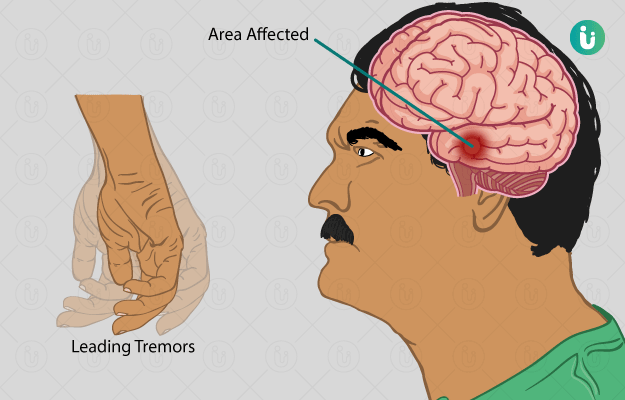What are hand tremors?
Tremors are involuntary, rhythmic movements of a certain group of muscles. Hand tremors are involuntary movements of the muscles of the hands (wrist, fingers and thumb), also known as shaky hands. This condition is relatively common in elderly individuals and makes their routine tasks difficult. It is not a life-threatening condition, but it can point towards a degenerative process occurring in the brain cells.
What are its main signs and symptoms?
Symptoms of hand tremors are simple and evidently visible as involuntary movement of the hands. But, sometimes, hand tremors are also associated with symptoms such as:
- Gradual unilateral (one-sided) onset of tremors that spread to the other hand (affecting both hands)
- Worsening of tremors with movements of the hands
- Worsening of tremors due to stress, fatigue, use of stimulants, etc.
- Generalised symptoms of ataxia (unsteady gait)
Symptoms become more troublesome when one finds it difficult to perform daily activities like wearing clothes, holding a glass or cup, eating or shaving. Even writing becomes difficult, which may have legal ramifications.
What are its main causes?
Hand tremors are generally due to essential tremors (nervous system disorder) or due to Parkinson’s disease. Both are genetic disorders that occur due to a mutation in the genes.
Other causes of hand tremors include:
- Hyperthyroidism
- Multiple sclerosis
- Dystonia
- Ageing
- Peripheral neuropathy
- Stroke
How is it diagnosed and treated?
A thorough medical history along with family history and a proper clinical examination usually confirms the diagnosis of tremors. Certain blood investigations like complete blood count (CBC), vitamin B12 levels, and routine investigations such as brain CT scan can be done to rule out other factors responsible for tremors.
Treatment modalities of hand tremors include:
Hand tremors cannot be cured, but certain treatment modalities that can help improve the symptoms are:
- Medications – Oral medications such as beta-blockers (e.g., propranolol and primidone), anti-seizure drugs, botox and drugs that treat anxiety can help in reducing the intensity of tremors.
- Surgical treatment – Deep brain stimulation and thalamotomy help in reducing tremors.
- Physical therapy – Use of weights, wearing wrist straps (wrist weights) and stress ball exercises can help in reducing tremor intensity.

 Doctors for Hand Tremors
Doctors for Hand Tremors  Lab tests for Hand Tremors
Lab tests for Hand Tremors


















